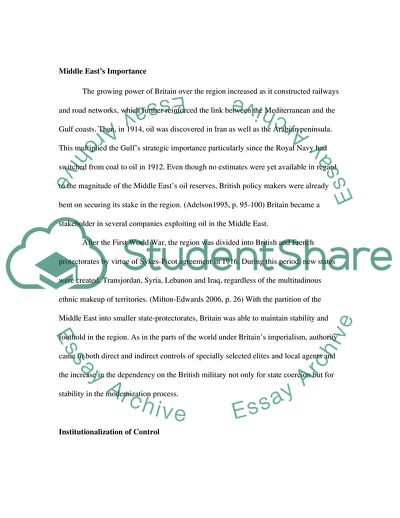Cite this document
(The Rise of British Imperialism in the Middle East Coursework, n.d.)
The Rise of British Imperialism in the Middle East Coursework. https://studentshare.org/history/1732907-explain-the-rise-and-fall-of-british-imperialism-in-the-middle-east-between-1914-and-1956
The Rise of British Imperialism in the Middle East Coursework. https://studentshare.org/history/1732907-explain-the-rise-and-fall-of-british-imperialism-in-the-middle-east-between-1914-and-1956
(The Rise of British Imperialism in the Middle East Coursework)
The Rise of British Imperialism in the Middle East Coursework. https://studentshare.org/history/1732907-explain-the-rise-and-fall-of-british-imperialism-in-the-middle-east-between-1914-and-1956.
The Rise of British Imperialism in the Middle East Coursework. https://studentshare.org/history/1732907-explain-the-rise-and-fall-of-british-imperialism-in-the-middle-east-between-1914-and-1956.
“The Rise of British Imperialism in the Middle East Coursework”. https://studentshare.org/history/1732907-explain-the-rise-and-fall-of-british-imperialism-in-the-middle-east-between-1914-and-1956.


